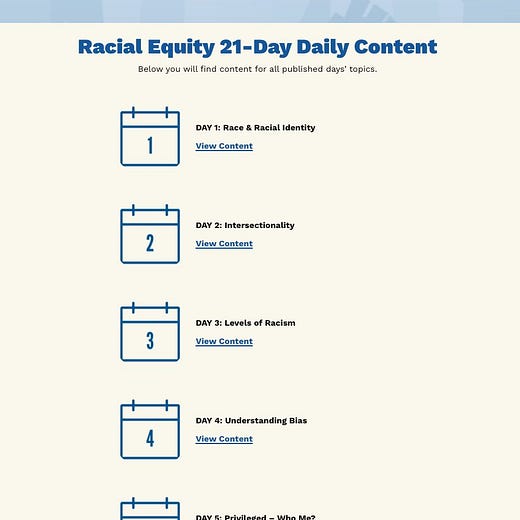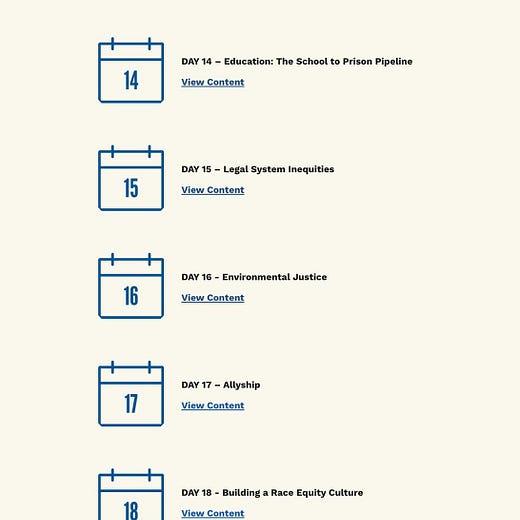E-Pluribus | August 19, 2021
Buying votes with federal funds, who makes a good American, and the US isn't finished yet... and that's a good thing.
A round up of the latest and best writing and musings on the rise of illiberalism in the public discourse:
Nick Stehle: Hooked on Federal Checks

Starting in July, Nick Stehle, along with millions of American parents (self included) began receiving monthly checks from the federal government in keeping with the new Advance Child Tax Credit Payments signed into law earlier this year. Perhaps made more politically palatable by the arguably justifiable doling out of funds to citizens during the pandemic to alleviate the impacts of lockdowns and job losses, Stehle nevertheless worries that this reliance on “free” money will come with a high cost, and not just a financial one.
The federal government is conditioning families like mine to expect “free” money. When you see that cash in your account, the first thought is how to use it. It becomes a habit to see and spend extra money each month. Like many habits, it is liable to worsen.
This problem extends far beyond my home. The families of nearly 60 million children are now receiving these new monthly payments, though many received a smaller annual tax break that was tied to work under the previous child tax credit. Some are struggling to make ends meet, but only 36% of these new payments are going to families in poverty. The rest of the money is going to families like mine.
I sense ulterior motives at work. The new child tax credit is a blatant attempt to buy votes from middle-class families. Once you come to expect a monthly check, it is more difficult to vote for someone who wants to cut off the cash. The Democrats who passed this policy are using it as a political weapon against the many Republicans who want to return to the previous system, updated in 2017, which kept the credit’s decadeslong connection to work.
Read it all.
Scott Lincicome: ‘We Will Be Great Americans’
What makes a good American? There’s no one answer, but here at Pluribus, we stand behind the motto from which we take our name. Immigration has been a source of debate and increasing rancor in recent years and genuine disagreements exist, but Scott Lincicome at The Dispatch makes the argument that immigrants are just what the US needs. (Disclosure, I am related to David Bier whose work is referenced in this piece.)
[T]here are plenty of reasons why the United States should do more for refugees, in Afghanistan and elsewhere. Most obviously, the nation has long recognized its moral obligation to help people displaced or endangered as a result of U.S. government actions—especially (but not limited) to those who voluntarily risked their lives to assist America’s military and diplomatic efforts abroad. I won’t depress you with the many tales of Afghan translators and others seemingly abandoned by the U.S. government in recent weeks, but feel free to click through these links—the latter of which provides the headline of this newsletter—if you haven’t already.
[…]
And if you find these touchy-feely ideals to be insufficient, there are plenty of selfish reasons to support a liberal refugee policy in the United States, including:
Economics. For starters, numerous studies indicate that refugees are not a big drag on the U.S. economy or government resources and are instead useful contributors to American society. Perhaps most notably, the refugee-skeptical Trump administration’s own HHS published a detailed report—suppressed by the White House—showing refugees in the United States to (eventually) assimilate, get jobs, and pay taxes.
[…]
Security. There’s also little reason to think that Afghan and other refugees pose a serious risk to Americans’ safety and security. Instead, a liberal U.S. refugee policy has long been a pillar of American foreign policy, especially during the Cold War.
Read it all here.
Joel Kotkin: America the Indispensable
Reports of the demise of the United States, or at least its imminence, are likely as exaggerated as reports of Mark Twain’s death (at the time of his famous cable, anyway) but they come along frequently nonetheless. Joel Kotkin writes at Quillette on the durability, inimitability and indispensability of the United States and why our country is still the “last great hope of humanity.”
Pessimism about America’s direction has resurged, following a brief improvement when Biden became president. According to an ABC/Ipsos poll, Americans’ optimism about the country’s direction has dropped 20 points since May. Concern is growing that the country is in a precipitous decline, something that won’t improve with the bleak images from the Afghani debacle. Most Europeans believe that China will soon replace America as the world’s economic powerhouse. The Chinese, unsurprisingly, seem to feel the same. In a since-deleted tweet, Ministry official Zhao Lijian described Western efforts to slow China’s dominion as being “as stupid as Don Quixote versus the windmills … China’s win is unstoppable.”
So will our children—now living in unhappy and increasingly divided societies—grow up kowtowing to the Mandarins? Without America, that’s the future for the West and everyone else. Europe, politically divided, demographically stagnant, and anti-American, lacks the capacity and willingness to resist. Germany appears unwilling to stand up to either its largest trading partner, China, or to its now-favored supplier of energy, Russia. Weaker European states, such as Italy, the Czech Republic, Greece, Macedonia, Montenegro, Poland, Portugal, Serbia, and even rightwing favorite Hungary have signed up to be cogs in China’s “Belt and Road initiative.” Asia’s democracies can’t hack it without America. Japan is a rich but aging country that lacks much forward momentum, something that can also be said of South Korea. India is still too poor and chaotic to match China’s regimented power.
Nevertheless, as Bismarck suggested, it’s not usually a good idea to bet against the United States. Trump’s disruptive interlude, notes Walter Russell Mead, may have concentrated the minds of others, creating “new leverage” for the US now that its support, particularly on the military side, can never again be taken for granted, particularly if they don’t seem willing to fight for themselves. Some countries, like the Philippines, have already reconsidered their China links and moved closer to Washington. Even some Europeans, notably France’s Emmanuel Macron, are ready to consider China as a strategic “rival.”
Read the whole thing.
Around Twitter:
Thread from Christopher Rufo on the latest woke corporation, Bank of America (click through for the entire thread):
Also via Rufo, an unlikely combination - Communist China and Critical Race Theory:
A thread from Foundation for Individual Rights in Education on a lawsuit on behalf of a student who was denied the right to start a healthcare reform club. Yes, that’s right. A club.
And finally, a plug for our Historically Speaking feature here at Pluribus; flashbacks to free speech defenses of the past that sometimes might cause uncomfortable squirming today:











